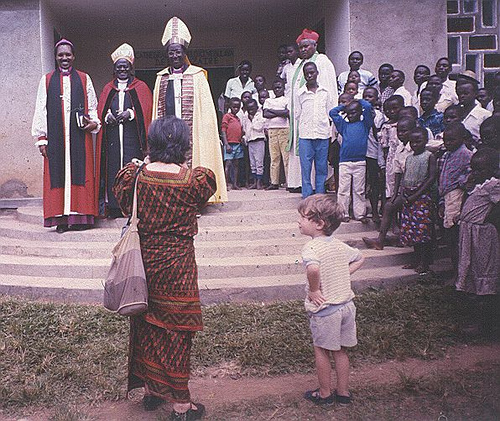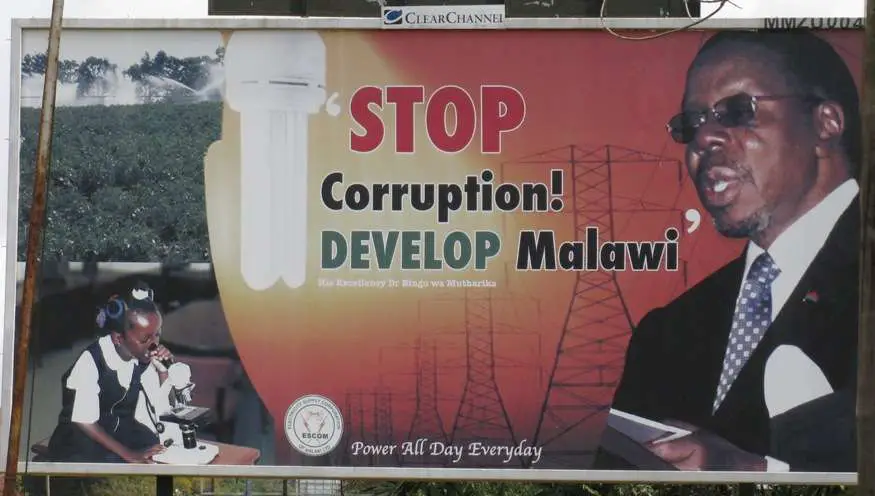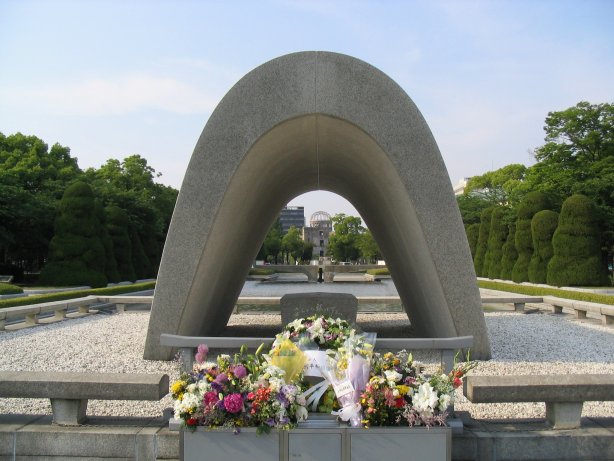I. The Facts
Just days before a much-awaited donor conference, the influential International Crisis Group (ICG) recommended to place all funds pledged to Macedonia under the oversight of a "corruption advisor" appointed by the European Commission. The donors ignored this and other recommendations. To appease the critics, the affable Attorney General of Macedonia charged a former Minister of Defense with abuse of duty for allegedly having channeled millions of DM to his relatives during the recent civil war. Macedonia has belatedly passed an anti-money laundering law recently - but failed, yet again, to adopt strict anti-corruption legislation.
In Albania, the Chairman of the Albanian Socialist Party, Fatos Nano, was accused by Albanian media of laundering $1 billion through the Albanian government. Pavel Borodin, the former chief of Kremlin Property, decided not appeal his money laundering conviction in a Swiss court. The Slovak daily "Sme" described in scathing detail the newly acquired wealth and lavish lifestyles of formerly impoverished HZDS politicians. Some of them now reside in refurbished castles. Others have swimming pools replete with wine bars.
Pavlo Lazarenko, a former Ukrainian prime minister, is detained in San Francisco on money laundering charges. His defense team accuses the US authorities of "selective prosecution".
They are quoted by Radio Free Europe as saying:
"The impetus for this prosecution comes from allegations made by the Kuchma regime, which itself is corrupt and dedicated to using undemocratic and repressive methods to stifle political opposition ... (other Ukrainian officials) including Kuchma himself and his closest associates, have committed conduct similar to that with which Lazarenko is charged but have not been prosecuted by the U.S. government".
The UNDP estimated, in 1997, that, even in rich, industrialized, countries, 15% of all firms had to pay bribes. The figure rises to 40% in Asia and 60% in Russia.
Corruption is rife and all pervasive, though many allegations are nothing but political mud-slinging. Luckily, in countries like Macedonia, it is confined to its rapacious elites: its politicians, managers, university professors, medical doctors, judges, journalists, and top bureaucrats. The police and customs are hopelessly compromised. Yet, one rarely comes across graft and venality in daily life. There are no false detentions (as in Russia), spurious traffic tickets (as in Latin America), or widespread stealthy payments for public goods and services (as in Africa).
It is widely accepted that corruption retards growth by deterring foreign investment and encouraging brain drain. It leads to the misallocation of economic resources and distorts competition. It depletes the affected country's endowments - both natural and acquired. It demolishes the tenuous trust between citizen and state. It casts civil and government institutions in doubt, tarnishes the entire political class, and, thus, endangers the democratic system and the rule of law, property rights included.
This is why both governments and business show a growing commitment to tackling it. According to Transparency International's "Global Corruption Report 2001", corruption has been successfully contained in private banking and the diamond trade, for instance.
Hence also the involvement of the World Bank and the IMF in fighting corruption. Both institutions are increasingly concerned with poverty reduction through economic growth and development. The World Bank estimates that corruption reduces the growth rate of an affected country by 0.5 to 1 percent annually. Graft amounts to an increase in the marginal tax rate and has pernicious effects on inward investment as well.
The World Bank has appointed last year a Director of Institutional Integrity - a new department that combines the Anti-Corruption and Fraud Investigations Unit and the Office of Business Ethics and Integrity. The Bank helps countries to fight corruption by providing them with technical assistance, educational programs, and lending.
Anti-corruption projects are an integral part of every Country Assistance Strategy (CAS). The Bank also supports international efforts to reduce corruption by sponsoring conferences and the exchange of information. It collaborates closely with Transparency International, for instance.
At the request of member-governments (such as Bosnia-Herzegovina and Romania) it has prepared detailed country corruption surveys covering both the public and the private sectors. Together with the EBRD, it publishes a corruption survey of 3000 firms in 22 transition countries (BEEPS - Business Environment and Enterprise Performance Survey). It has even set up a multilingual hotline for whistleblowers.
The IMF made corruption an integral part of its country evaluation process. It suspended arrangements with endemically corrupt recipients of IMF financing. Since 1997, it has introduced policies regarding misreporting, abuse of IMF funds, monitoring the use of debt relief for poverty reduction, data dissemination, legal and judicial reform, fiscal and monetary transparency, and even internal governance (e.g., financial disclosure by staff members).
Yet, no one seems to agree on a universal definition of corruption. What amounts to venality in one culture (Sweden) is considered no more than hospitality, or an expression of gratitude, in another (France, or Italy). Corruption is discussed freely and forgivingly in one place - but concealed shamefully in another. Corruption, like other crimes, is probably seriously under-reported and under-penalized.
Moreover, bribing officials is often the unstated policy of multinationals, foreign investors, and expatriates. Many of them believe that it is inevitable if one is to expedite matters or secure a beneficial outcome. Rich world governments turn a blind eye, even where laws against such practices are extant and strict.
In his address to the Inter-American Development Bank on March 14, President Bush promised to "reward nations that root out corruption" within the framework of the Millennium Challenge Account initiative. The USA has pioneered global anti-corruption campaigns and is a signatory to the 1996 IAS Inter-American Convention against Corruption, the Council of Europe's Criminal Law Convention on Corruption, and the OECD's 1997 anti-bribery convention. The USA has had a comprehensive "Foreign Corrupt Practices Act" since 1977.
The Act applies to all American firms, to all firms - including foreign ones - traded in an American stock exchange, and to bribery on American territory by foreign and American firms alike. It outlaws the payment of bribes to foreign officials, political parties, party officials, and political candidates in foreign countries. A similar law has now been adopted by Britain.
Yet, "The Economist" reports that the American SEC has brought only three cases against listed companies until 1997. The US Department of Justice brought another 30 cases. Britain has persecuted successfully only one of its officials for overseas bribery since 1889. In the Netherlands bribery is tax deductible. Transparency International now publishes a name and shame Bribery Payers Index to complement its 91-country strong Corruption Perceptions Index.
Many rich world corporations and wealthy individuals make use of off-shore havens or "special purpose entities" to launder money, make illicit payments, avoid or evade taxes, and conceal assets or liabilities. According to Swiss authorities, more than $40 billion are held by Russians in its banking system alone. The figure may be 5 to 10 times higher in the tax havens of the United Kingdom.
In a survey it conducted last month of 82 companies in which it invests, "Friends, Ivory, and Sime" found that only a quarter had clear anti-corruption management and accountability systems in place.
Tellingly only 35 countries signed the 1997 OECD "Convention on Combating Bribery of Foreign Public Officials in International Business Transactions" - including four non-OECD members: Chile, Argentina, Bulgaria, and Brazil. The convention has been in force since February 1999 and is only one of many OECD anti-corruption drives, among which are SIGMA (Support for Improvement in Governance and Management in Central and Eastern European countries), ACN (Anti-Corruption Network for Transition Economies in Europe), and FATF (the Financial Action Task Force on Money Laundering).
Moreover, The moral authority of those who preach against corruption in poor countries - the officials of the IMF, the World Bank, the EU, the OECD - is strained by their ostentatious lifestyle, conspicuous consumption, and "pragmatic" morality.
II. What to Do? What is Being Done?
Two years ago, I proposed a taxonomy of corruption, venality, and graft. I suggested this cumulative definition:
The withholding of a service, information, or goods that, by law, and by right, should have been provided or divulged.
The provision of a service, information, or goods that, by law, and by right, should not have been provided or divulged.
That the withholding or the provision of said service, information, or goods are in the power of the withholder or the provider to withhold or to provide AND That the withholding or the provision of said service, information, or goods constitute an integral and substantial part of the authority or the function of the withholder or the provider.
That the service, information, or goods that are provided or divulged are provided or divulged against a benefit or the promise of a benefit from the recipient and as a result of the receipt of this specific benefit or the promise to receive such benefit.
That the service, information, or goods that are withheld are withheld because no benefit was provided or promised by the recipient.
There is also what the World Bank calls "State Capture" defined thus:
"The actions of individuals, groups, or firms, both in the public and private sectors, to influence the formation of laws, regulations, decrees, and other government policies to their own advantage as a result of the illicit and non-transparent provision of private benefits to public officials."
We can classify corrupt and venal behaviours according to their outcomes:
Income Supplement - Corrupt actions whose sole outcome is the supplementing of the income of the provider without affecting the "real world" in any manner.
Acceleration or Facilitation Fees - Corrupt practices whose sole outcome is to accelerate or facilitate decision making, the provision of goods and services or the divulging of information.
Decision Altering Fees - Bribes and promises of bribes which alter decisions or affect them, or which affect the formation of policies, laws, regulations, or decrees beneficial to the bribing entity or person.
Information Altering Fees - Backhanders and bribes that subvert the flow of true and complete information within a society or an economic unit (for instance, by selling professional diplomas, certificates, or permits).
Reallocation Fees - Benefits paid (mainly to politicians and political decision makers) in order to affect the allocation of economic resources and material wealth or the rights thereto. Concessions, licenses, permits, assets privatized, tenders awarded are all subject to reallocation fees.
To eradicate corruption, one must tackle both giver and taker.
History shows that all effective programs shared these common elements:
The persecution of corrupt, high-profile, public figures, multinationals, and institutions (domestic and foreign). This demonstrates that no one is above the law and that crime does not pay.
The conditioning of international aid, credits, and investments on a monitored reduction in corruption levels. The structural roots of corruption should be tackled rather than merely its symptoms.
The institution of incentives to avoid corruption, such as a higher pay, the fostering of civic pride, "good behaviour" bonuses, alternative income and pension plans, and so on.
In many new countries (in Asia, Africa, and Eastern Europe) the very concepts of "private" versus "public" property are fuzzy and impermissible behaviours are not clearly demarcated. Massive investments in education of the public and of state officials are required.
Liberalization and deregulation of the economy. Abolition of red tape, licensing, protectionism, capital controls, monopolies, discretionary, non-public, procurement. Greater access to information and a public debate intended to foster a "stakeholder society".
Strengthening of institutions: the police, the customs, the courts, the government, its agencies, the tax authorities - under time limited foreign management and supervision.
Awareness to corruption and graft is growing - though it mostly results in lip service. The Global Coalition for Africa adopted anti-corruption guidelines in 1999. The otherwise opaque Asia Pacific Economic Cooperation (APEC) forum is now championing transparency and good governance. The UN is promoting its pet convention against corruption.
 The G-8 asked its Lyon Group of senior experts on transnational crime to recommend ways to fight corruption related to large money flows and money laundering. The USA and the Netherlands hosted global forums on corruption - as will South Korea next year. The OSCE is rumored to respond with its own initiative, in collaboration with the US Congressional Helsinki Commission.
The G-8 asked its Lyon Group of senior experts on transnational crime to recommend ways to fight corruption related to large money flows and money laundering. The USA and the Netherlands hosted global forums on corruption - as will South Korea next year. The OSCE is rumored to respond with its own initiative, in collaboration with the US Congressional Helsinki Commission.
The south-eastern Europe Stability Pact sports its own Stability Pact Anti-corruption Initiative (SPAI). It held its first conference in September 2001 in Croatia. More than 1200 delegates participated in the 10th International Anti-Corruption Conference in Prague last year. The conference was attended by the Czech prime minister, the Mexican president, and the head of the Interpol.
The most potent remedy against corruption is sunshine - free, accessible, and available information disseminated and probed by an active opposition, uncompromised press, and assertive civic organizations and NGO's. In the absence of these, the fight against official avarice and criminality is doomed to failure. With them, it stands a chance.
Corruption can never be entirely eliminated - but it can be restrained and its effects confined. The cooperation of good people with trustworthy institutions is indispensable. Corruption can be defeated only from the inside, though with plenty of outside help. It is a process of self-redemption and self-transformation. It is the real transition.

 More than half a century, the Liberal Democratic Party (LDP) in power in Japan. And during that time Japan always maintained close relations with the U.S. superpower. Jpd victory is expected to bring major changes in Japan, especially foreign policy, it is clearly going to change.
More than half a century, the Liberal Democratic Party (LDP) in power in Japan. And during that time Japan always maintained close relations with the U.S. superpower. Jpd victory is expected to bring major changes in Japan, especially foreign policy, it is clearly going to change.





























